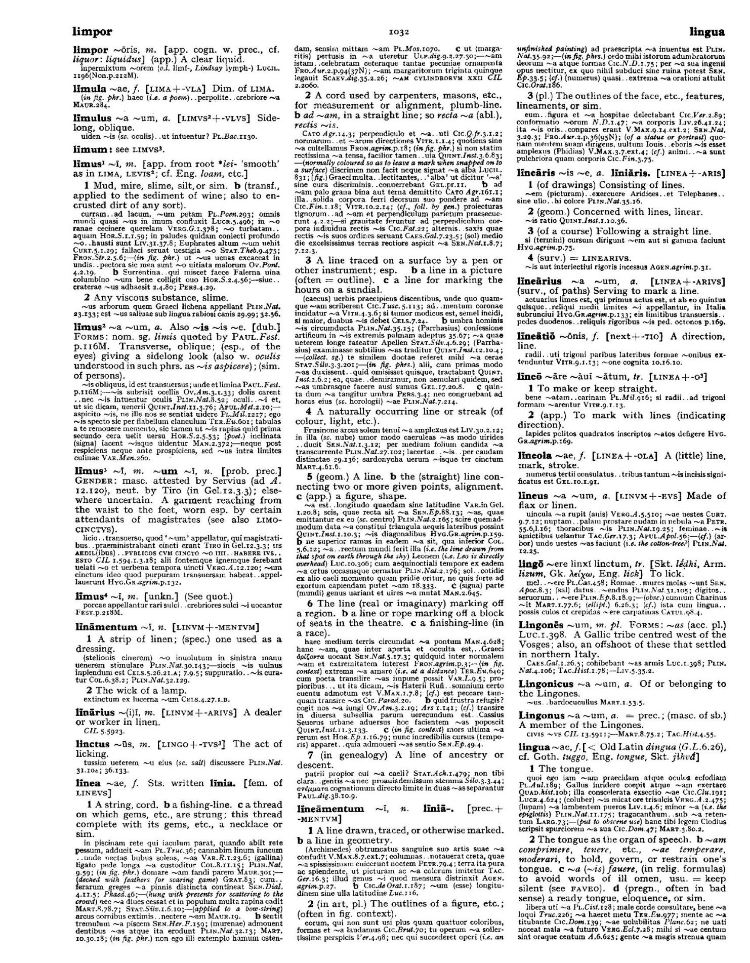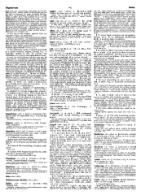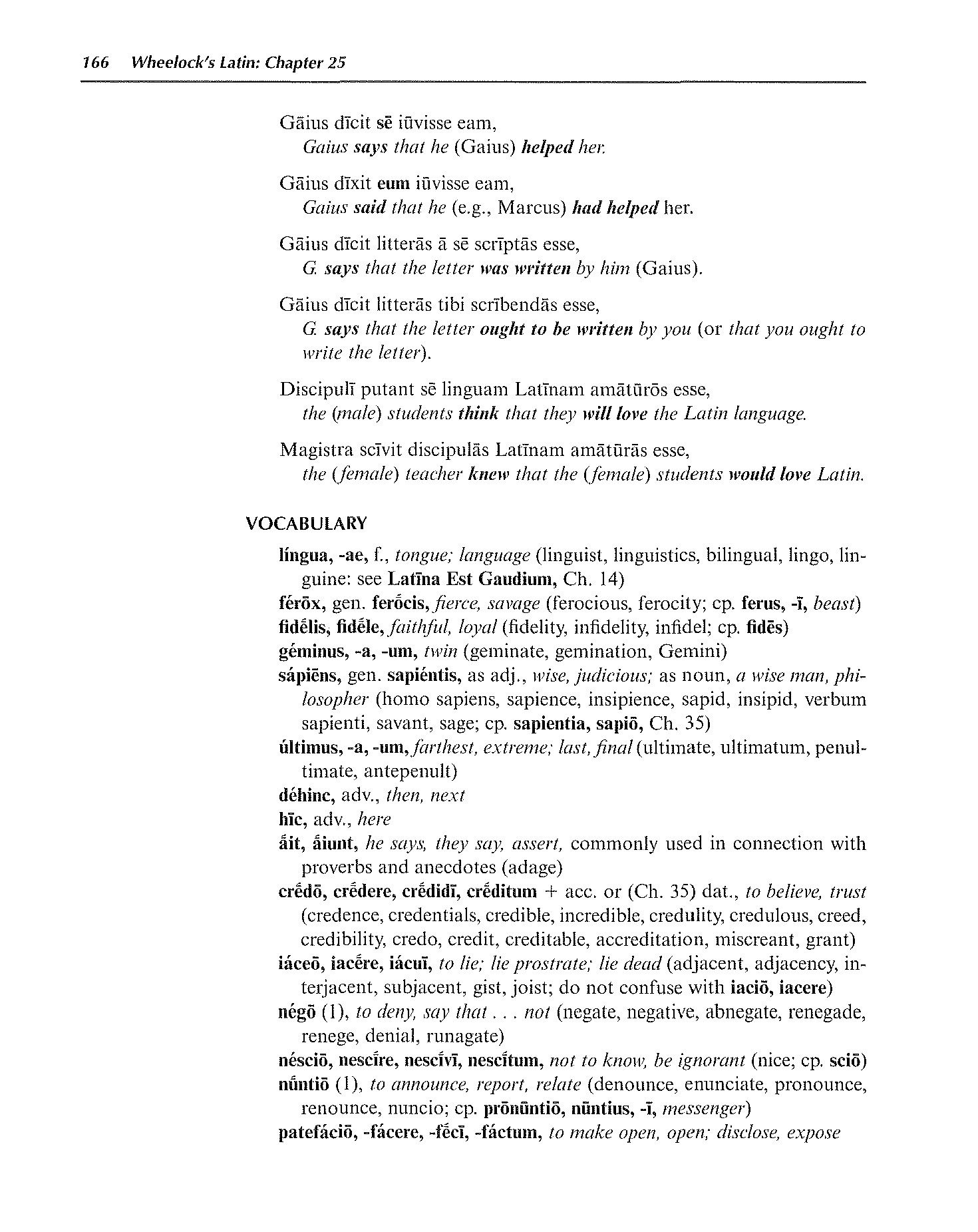
page_listing.tpl
page_subListingDetails.tpl
sub_listingDetails_style1.tpl
sub_listingDetails.title.tpl
lingua tongue
lingua is a Latin Noun that primarily means tongue.
Definitions for lingua
Wheelock's Latin
Noun
- 1
tongue, language
English derivatives:
linguist linguistics bilingual lingo linguine
Oxford Latin Dictionary
Noun
- 1
The tongue.
- 2
The tongue as the organ of speech. (b) ~am comprimere, tenere, etc., ~ae temperare, moderari, to hold, govern, or restrain one's tongue. (c) ~a (~is) fauere, (in relig. formulas) to avoid words of ill omen, usu. = keep silent (see FAVEO). (d) (pregn., often in bad sense) a ready tongue, eloquence, or sim.
- 3
The use of the tongue, speech; also, an example of this, an utterance.
Sentences with lingua
Latin to English
Plūrēs quidem discipulōs hortēmur ut linguae Latīnae studeant.Compare Let us urge more students certainly to study the Latin language.
Hī omnēs linguā, īnstitūtīs, lēgibus inter sē differunt.Compare These all differ from one another in language, customs, and laws.
Virtūs, probitās, integritās in candidāto, nōn linguaē volūbilitās, nōn ars, nōn scientia requīrī solet. (Cicero, Pro Planchio, 62)Compare Moral courage, honesty, and integrity are usually sought in candidates, not a glib tongue, skill or knowledge.
Doceāmus magnā cum dēlectātiōne linguam Latīnam.Compare Let us teach the Latin language with great delight.
Eurydicen vox ipsa et frigida lingua a miseram Eurydicen! Anima fugiente vocabat.Compare That cold, cold tongue cried out "Eurydice!" cried "Poor Eurydice!" as the soul of the singer fled.
Cēdant arma togae, concēdat laurea linguae. (Cicero, De consultatu sou)Compare Let arms yield to the toga, let the (general's) laurels yield to the (orator's) tongue.
Declension table for lingua
Cactus2000
| Singular | Plural | |
| Nom. | lingua | linguae |
| Gen. | linguae | linguārum |
| Dat. | linguae | linguīs |
| Acc. | linguam | linguās |
| Abl. | linguā | linguīs |
Data sources
Notes
- Definitions
- Frederick M. Wheelock, Wheelock's Latin, 6th ed., rev. Richard A. LaFleur (New York, NY: HarperCollins Publishers, 2005): 166.
- P. G. W. Glare, Oxford Latin Dictionary, Vols. 1-8 (Oxford: Clarendon Press, 1982): 1032.
- Word frequencies
- Christopher Francese, "Latin Core Vocabulary," Dickinson College Commentaries, last modified 2014, http://dcc.dickinson.edu.
- Paul B. Diederich, The Frequency of Latin Words and Their Endings, PhD diss., (Columbia University, 1939).
- Louis Delatte, Suzanne Govaerts, Joseph Denooz, and Etienne Evrard, Dictionnaire fréquentiel et index inverse de la langue latine [Frequency Dictionary and Inverse Index of the Latin Language] (Liège, Belgium: Laboratoire d'analyse statistique des langues anciennes de l'Université de Liège [L.A.S.L.A.], 1981): 126.
Bibliography
Allen, Joseph H. Allen and Greenough's New Latin Grammar for Schools and Colleges: Founded on Comparative Grammar. Edited by James B. Greenough, George L. Kittredge, Albert A. Howard, and Benjamin L. D'Ooge. Boston, MA: Ginn & Company, 1903.
Crystal, David. A Dictionary of Linguistics and Phonetics. 6th ed. Oxford, UK: Blackwell Publishing, 2008.
Delatte, Louis, Suzanne Govaerts, Joseph Denooz, and Etienne Evrard. Dictionnaire fréquentiel et index inverse de la langue latine [Frequency Dictionary and Inverse Index of the Latin Language]. Liège, Belgium: Laboratoire d'analyse statistique des langues anciennes de l'Université de Liège (L.A.S.L.A.), 1981.
Diederich, Paul B. The Frequency of Latin Words and Their Endings. PhD diss., Columbia University, 1939.
Francese, Christopher. "Latin Core Vocabulary." Dickinson College Commentaries. Last modified 2014. http://dcc.dickinson.edu/latin-vocabulary-list.
Gildersleeve, Basil L., and Gonzales Lodge. Gildersleeve's Latin Grammar: Third Edition, Revised, and Enlarged. 3rd ed. London, England: Macmillan and Co., 1903.
Glare, Peter G.W. Oxford Latin Dictionary. Vols. 1-8. Oxford, England: Clarendon Press, 1982.
Krüger, Bernd. "Latin Conjugation Tables." Cactus2000. Accessed May 5, 2023. https://latin.cactus2000.de/index.en.php.
Pierson, Nick. "Sound of Text." Accessed October 26, 2019. https://soundoftext.com.
Wheelock, Frederick M. Wheelock's Latin. 6th ed. Revised by Richard A. LaFleur. New York, NY: HarperCollins Publishers, 2005.
Wiktionary Contributors. "Victionarium." Wikimedia Foundation, Inc. Updated March 18, 2019. https://la.wiktionary.org/wiki/Victionarium:Pagina_prima.
Citation
Chicago (17th ed.)
Allo Contributors. "lingua, linguae (n.) - Latin Word Definition." Allo Latin Dictionary. Last modified . Accessed February 19, 2026. http://ancientlanguages.org/latin/dictionary/lingua-linguae.
Entry created on . Last updated on .








